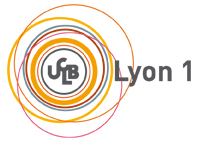Outils pour utilisateurs
Panneau latéral
Table des matières
Project achievements
Since the beginning of the Web Serviable project, several works have been conducted that are related to the project, and more globally to the project members' activities around the Web.
Web positioning at LIRIS
At the end of 2013, we have led a survey about the impact of the Web on LIRIS lab members research activities. Its results cannot be publicly displayed, but show that the Web is an important field, both as research study and as application field. As a follow up to this survey, we started a working group to improve the quantity and quality of LIRIS publications in Web-related conferences and journals, as well as to help the LIRIS direction have an overview and coordinate the research initiatives on the Web in the laboratory.
Moreover, two project members have participated to the winning bid for hosting the WWW conference in Lyon in 2018 and are now co-scientific chairs of the local organization committee.
Developments
The first work conducted in the project were oriented towards Semantic Web Resources, which are RESTful resources that are semantically annotated. In particular, we studied the notion of Semantic Resource Mashup (SRM), by adapting the RDF-REST framework Champin 2013. Such SRMs can be applied in various fields, such as data mashups Médini et al. 2014 and Web of Things applications Mrissa et al. 2015.
In the field of SWR mashups, we improved the DataConf application - a client-side Web mashup that allows browsing and enriching conference metadata. We integrated the principles of the RDF-REST framework into a new version and refined KeywordExtactor, a more generic mechanism for producing a conference keyword ontology and for reasoning on these keywords. Since then, the initial DataConf app has turned to LiveCon and then to Sympozer and was adopted as the official app of the 12th ESWC conference.
We also studied reasoning processes related to SWRs, with two main realizations:
- In the field of contextual adaptation, we designed and implemented Hypermedia Location-Agnostic Reasoner (HyLAR) a full Web (JavaScript) mechanism to balanced reasoning processes between the server and client sides.
- Using another reasoner (EYE), we also deployed and developed a mashup for composing RESTful resources, semantically annotated using the Hydra vocabulary. This study has been applied to the Web of Things domain, and led to this prototype.
Publications
Towards semantic resource mashups. L Médini, P-A. Champin, M. Mrissa, A. Cordier. Dans Services and Applications over Linked APIs and Data (SALAD), workshop at ESWC, Heraklion. pp. 6-9. CEUR Vol-1. 2014. PDF
HyLAR: Hybrid Location-Agnostic Reasoning. Mehdi Terdjimi, Lionel Médini, Michael Mrissa. ESWC Developers Workshop 2015, May 2015, Portoroz, Slovenia. pp.1, 2015 PDF




